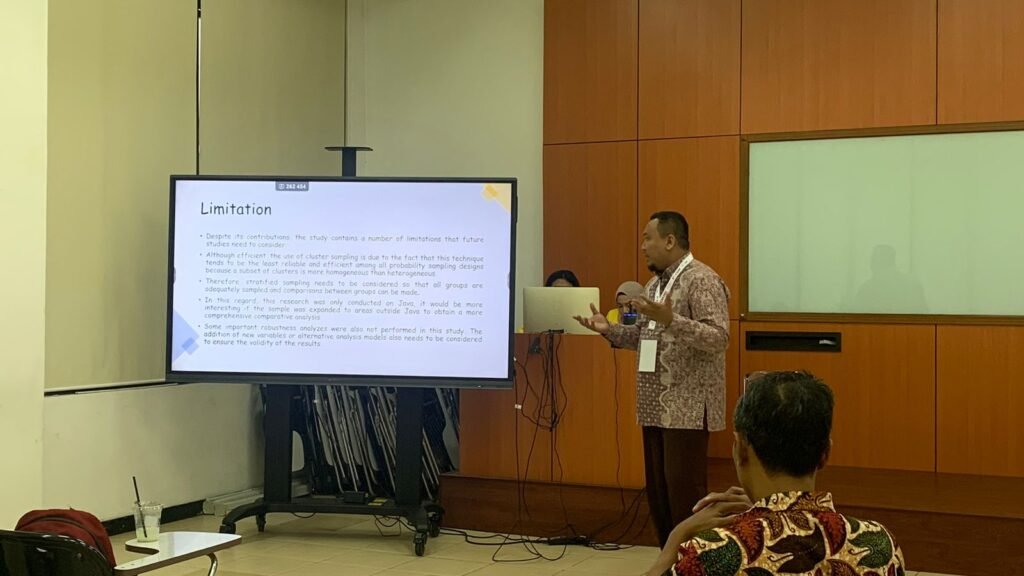At the 4th International Conference on Administrative Science, Policy, and Governance Studies (ICAS-PGS 2024), Gustofan Mahmud from Pratama Institute presented innovative research developed alongside Prianto Budi Saptono. This study explores the significant potential of e-Filing systems in enhancing tax compliance and business performance among Micro, Small, and Medium Enterprises (MSMEs) in Indonesia. Through his presentation, Mahmud provided in-depth insights into the acceptance and effectiveness of e-Filing, integrating the Technology Acceptance Model (TAM) and the DeLone and McLean (D&M) Information System Success Model, contributing crucial understanding of the factors influencing the success of this system.
Digital Transformation of MSMEs through e-Filing
Saptono and Mahmud’s research identifies that e-Filing, an electronic tax filing system, can significantly improve tax compliance and business performance among MSMEs. In the context of technology adoption, they explored various factors influencing the system’s success, including information quality, service quality, ease of use, user satisfaction, and the intention to use the system. The study results indicate that information quality has the most significant impact on user satisfaction, while service quality plays a crucial role in determining the intention to use e-Filing.
Research Methodology and Findings
The study was conducted by collecting data from 355 MSME owners or managers in four key provinces on the island of Java: DKI Jakarta, West Java, Central Java, and East Java. The methods included cluster and simple random sampling, with data analysis using Partial Least Squares Structural Equation Modeling (PLS-SEM). The survey results showed that adopting e-Filing has a significantly positive impact on tax compliance and business performance among MSMEs. The research also found that ease of use and perceived usefulness significantly influence the intention to use the e-Filing system.
Implications for Policy and Practice
The findings from this research have important implications for policymakers and tax authorities in Indonesia. Implementing e-Filing not only simplifies the tax reporting process but also has the potential to reduce errors and lower compliance costs. Therefore, it is recommended that the government and relevant authorities focus on improving the quality of e-Filing information and services, as well as providing user-friendly interfaces. Additionally, comprehensive training and education are essential to facilitate broader adoption among MSMEs.
Looking Ahead: Recommendations and Future Research
This research also paves the way for future studies that can explore the impact of e-Filing on MSMEs in other countries and develop more comprehensive models to evaluate the system’s effectiveness. Further studies are needed on digital skills, user interface design, and policy interventions that can enhance e-Filing adoption. Future research could consider non-linear effects and moderating variables in the PLS-SEM model to provide a more complete picture of e-Filing implementation.
Conclusion
The research by Prianto Budi Saptono and Gustofan Mahmud significantly contributes to understanding how e-Filing systems can improve tax compliance and business performance among MSMEs in Indonesia. Based on these findings, it is hoped that the government and policymakers can design better strategies to support MSMEs and enhance the effectiveness of digital tax systems. This innovation indicates a positive direction in the digital transformation of the MSME sector and provides an example for other countries facing similar challenges.
